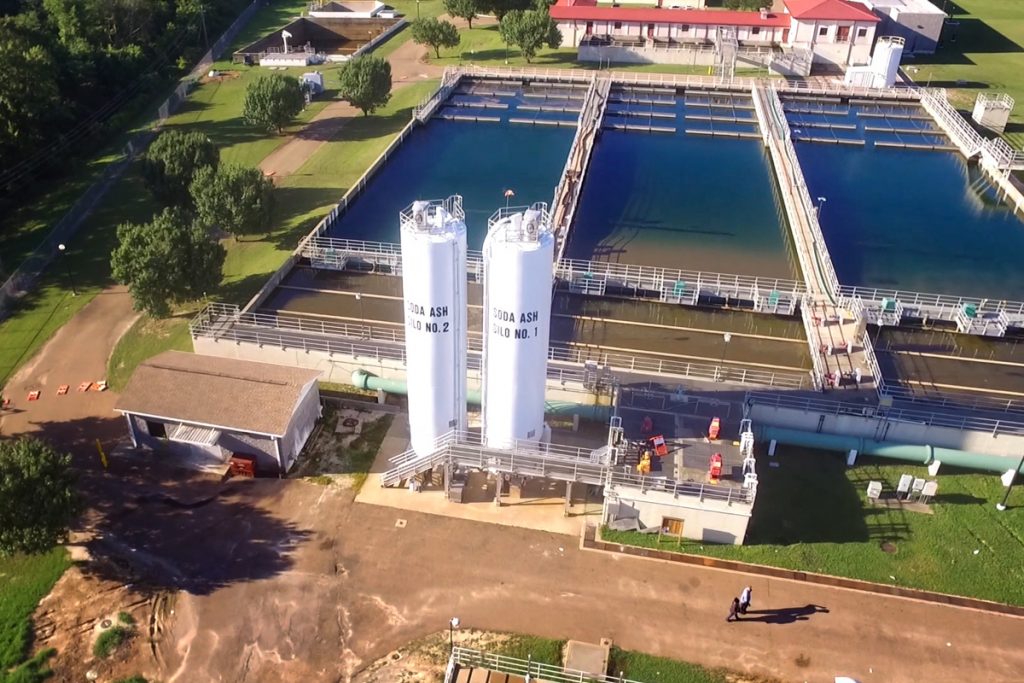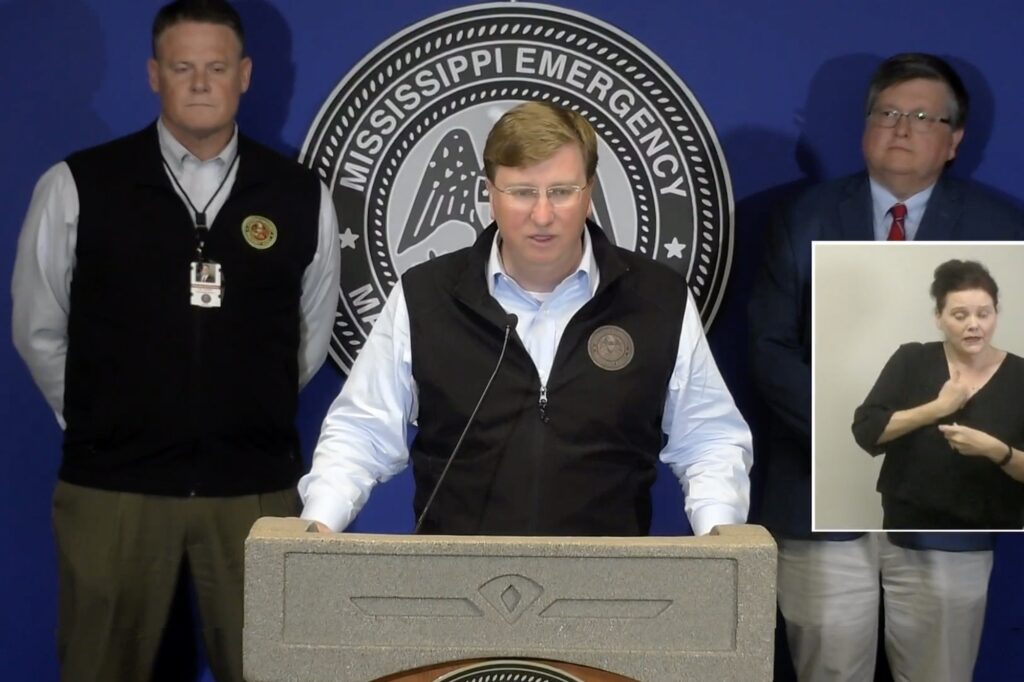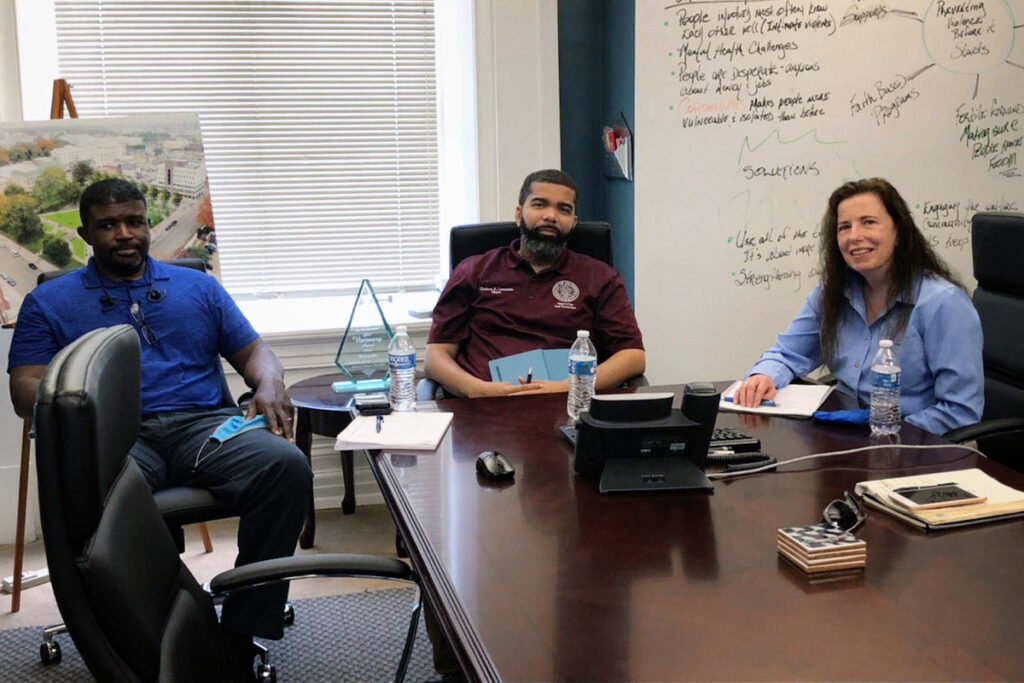JACKSON, Miss.—Only days before the effective collapse of Jackson’s water system, the Environmental Protection Agency highlighted a critical failure on the part of the capital city’s leaders in pursuing new water operations staff and in implementing an alternative water plan. These compounding errors have emerged as the foundation of the new stage of the Jackson water crisis, with City of Jackson facilities unable to generate enough clean water to keep the system close to full pressure.
In spite of critical staffing shortages threatening the basic operation of the O.B. Curtis Water Treatment Plant, EPA leadership warned that the City of Jackson has put no visible effort into hiring new employees.
“There’s very specific training to become a Class A (water) operator,” Carol Kemker, the director of the EPA’s Enforcement and Compliance Assurance Division, told the Mississippi Free Press in an Aug. 26 interview. Kemker has previously visited Jackson to tour its water system.
“We have not seen any evidence that (the City of Jackson) has tried to reach that labor pool,” she said.
Currently, Jackson is over a month into one of the longest citywide boil-water notices in recent history. Following persistent failure of key water pumps at O.B. Curtis and flooding from the Pearl River’s over 35-foot crest, the city has now entered a water shortage closer to the acute crisis of February 2021. Last night, Gov. Tate Reeves announced a state-level intervention to prop up the water treatment plant and deliver water to Jackson residents.
‘I Don’t Know That They’ve Tried’
Kemker and a team of EPA officials have worked closely with the City of Jackson in recent years to address manifest failures in the city’s water system, from lead and copper rule exceedances to turbidity violations. In the past, Kemker has expressed cautious optimism about the city’s progress in upgrading its water treatment facilities.
But just last Friday, she offered a grim assessment of the City’s attempts to address its single greatest need: qualified water operators. Not only is Jackson nowhere near acquiring the necessary staff to operate O.B. Curtis at full capacity, the EPA says it has yet to see the City even try.
“We asked in an information request letter for their communications regarding staffing. In (both) documentation and communications, we did not see evidence of any efforts to recruit. So I don’t know that they’ve tried to reach into that labor pool, or if so, what specific actions they have taken,” Kemker said.
She added that not only had the City of Jackson not provided evidence of job fairs or recruitment events, it had failed to show even basic hiring practices that could fill the enormous need at its water treatment facilities.
“They could be reaching out to technical colleges, they could be holding recruitment events, they could be scheduling interviews, they could be putting in advertisements,” Kemker said. “(This is) what we do when we recruit. We’re not seeing those types of things.”

The staffing shortage at O.B. Curtis Water Treatment is well beyond crisis level. Just this month, WLBT’s C.J. LeMaster obtained communications from former Public Workers Director Charles Williams warning that even the loss of one water operator could cause a full shutdown of the plant. Now, even without the loss of that final operator, the State is intervening to prevent such a shutdown.
O.B. Curtis is the newer of Jackson’s two water treatment plants and provides a majority of the city’s drinking water. J.H. Fewell Water Treatment Plant, built over 100 years ago, provides a smaller proportion, but its continued operation is still necessary to keep Jackson’s water distribution system appropriately pressurized.
Kemker expanded on the situation at O.B. Curtis in Friday’s interview. Presently, she said, a third Class A operator is available to fill in if an emergency arises at O.B. Curtis. “It is true that you have two Class A operators at O.B. Curtis,” she explained. “(But) they have a third that they can bring into that slot for a period of time until they recruit another. So to my knowledge, there are three Class A certified operators that would be available. They’re currently using two.”
Two Class A operators for an operation the size of O.B. Curtis is still a razor-thin staffing margin. The plant would need 10 more Class A operators to be fully staffed. Clean Water Act regulations mandate at least one Class A operator on duty for a water treatment plant to operate. As it stands, WLBT obtained documents showing that O.B. Curtis currently runs on hundreds of hours of overtime shared among its few certified employees.
While the most immediate threat to the continued operation of the plant is a lack of Class A operators, Kemker stressed that even basic maintenance personnel were sorely lacking at the plant. “It’s not just the certified operator issue—it’s also a lack of staffing to do routine maintenance. You can fix systems, but if you don’t do the routine maintenance, if you operate systems without maintaining them, they break again and you end up in a fix-break-fix cycle,” she said.
Safe Drinking Water Branch Chief Brian Smith went further, adding that EPA was open to virtually any methods that Jackson might be willing to use to address the staffing shortage, including contracting.
“If they want to hire city employees, that’s fine. If they want to contract for operators or maintenance technicians, that’s acceptable as well. And they do it on the wastewater side,” Smith said.
“That was the other thing we were looking for. We saw no information or correspondence that they were seeking a contract to do it,” Kemker said. “The mayor asked if that was an option, and I said yes it is. We do not dictate how you staff.”
Shortly before this story went live, the City of Jackson “reassigned” Public Works Director Marlon King. Former Director of Planning and Development Jordan Hillman was announced as interim public works director in his place.
‘The City Cannot Produce Enough Water’
As flooding from the historically high Pearl River threatened homes across Jackson and the continued operation of O.B. Curtis, the city was still without a fully implemented plan. Now, it finds itself at risk of another extended water crisis more akin to the deep-freeze disaster of 2021 than the slow-rolling turbidity crisis of the last month.
Kemker said that this failure to adopt a contingency plan was the City of Jackson’s second biggest issue alongside its lack of initiative on hiring. “The City has an approved alternative water plan,” she explained. “They have not implemented that plan. So our work with them is to implement that alternative water plan because that is critical.”
“If O.B. Curtis is taken down completely, they would need to implement alternative water immediately,” Kemker continued. Her warning, which came as the Pearl River rose to its fourth-highest recorded crest, proved immediate in its prescience.
Only days later, the City of Jackson’s water system came to the cusp of complete failure. Gov. Tate Reeves held a press event Monday night announcing the State’s intervention in the capital city’s water-treatment plant as well as in water distribution to up to 180,000 residents in and around the city.

“This is a very different situation from a boil-water notice,” Reeves explained last night. “Until it is fixed, we do not have reliable running water at scale. The city cannot produce enough water to fight fires, to flush toilets and to meet other critical needs.”
The state’s intervention comes in the absence of a fully implemented crisis plan on the part of the city.
“We don’t tell cities how to provide water (in emergencies),” Kemker said in the Aug. 26 interview. “Sometimes they do the distribution themselves. and that’s their decision, but this is the plan that was submitted by the City for our approval. In essence, it was for them to enter into a contract with a third party, whether it’s a local grocery store, to provide sufficient bottled water available for City of Jackson customers in areas affected by an incident like a boil-water notice.”
The EPA provided a document titled “Alternative Water Source Plan Development and Implementation,” which Keyshia Sanders, manager of the Department of Constituent Services, wrote.
The brief plan outlines steps for notifying residents of water outages and delivering water to those in need. But critically, the first step in the process is a term-bid agreement with a licensed water distributor or grocery store in the city—a contract that could ensure water deliveries in a crisis.
EPA officials told the Mississippi Free Press in a statement that Jackson had failed to implement a two-year term bid agreement in the intervening years in spite of the fact that the EPA requested the plan in March 2020, and Jackson submitted the plan in April 2020.
Earlier, the City of Jackson warned that ongoing problems at O.B. Curtis would disrupt water delivery for some time.
“The flooding of the Pearl River has created problems with treating water at the O.B. Curtis Water Plant,” City of Jackson Executive Writer Justin Vicory wrote on Monday. “Adjustments to the water treatment process are being made and has led to a temporary decrease in the production of water for some areas. This will remain an issue for the next couple days as we work to refill the tanks.”
Reeves acknowledged that he did not invite Lumumba to last night’s press event, nor had he spoken to the mayor directly about the ongoing crisis.
‘Marshaling Tremendous Resources’
On Tuesday morning, Reeves announced that he was activating the National Guard to assist the operations at O.B. Curtis. “The state is marshaling tremendous resources to protect the people of our capital city,” he said. “It will take time for that to come to fruition. But we are here in times of crisis for anyone in the state who needs it.”
White House Press Secretary Karine Jean-Pierre released a statement today explaining that “FEMA is working closely with the state officials to identify needs, and the EPA is coordinating with industry partners to expedite delivery of critical treatment equipment for emergency repairs at the City of Jackson water treatment facilities.”

Reeves responded shortly afterwards. “The state has created an incident command center to step in and restore water at the city’s plant. We are sending a request for a federally-declared disaster to support state and city emergencies. Clear communication between locals/state/feds. Please keep Jackson in your prayers!” he wrote.
The City of Jackson declined multiple requests for an interview for this story, explaining that the weekend flooding was occupying the mayor’s time.
Today, after press time, outside Jackson City Hall, Mayor Chokwe A. Lumumba responded to the EPA’s comments. “I don’t know how abreast of all of the recruitment efforts Ms. Kemker is,” he said. “I can tell you right now that we have 10 individuals that are training to be Class A Operators right now, as we speak. For (someone with a degree) it takes two years for them to be able to be certified as a Class A operator. For a non-degree individual, it takes as much as six years.”
“Our human resources division has gone as far as reaching out to other counties and traveling to work in this regard,” he continued. “We have made an agreement with the army reserves in order to bring in people … We’re looking to bring in retired employees that can work a maximum of 20 hours for the timeframe prescribed without endangering their retirement.”
For contract employees, the mayor said, the city was waiting on proposals from companies. “There’s nothing to provide. We’ve been waiting on a proposal from certain companies that we have not received … we’ve been working to bring in a third party company over a six month period,” Lumumba acknowledged.
“That process has not been completed, but we are in active and ongoing discussions with multiple agencies and multiple firms that are looking to enterprise us from today,” he concluded.
With regards to the alternative water distribution plan, Lumumba said that the Jackson City Council had agreed to a contract with the Coca-Cola Company earlier that day. Prior to the contract, he added, the city had made use of donated water to fill the need.
“We didn’t have a contract in place, but were receiving the donations to meet the need. And so we were getting it by donations and not by expense,” he concluded. “That’s where we get into technical violations, which is to say that we didn’t have a contract, but the reality is that we were providing that water.”
Also read Nick Judin’s award-winning 2021 multi-part series revealing factors creating the Jackson water crisis over the decades.










